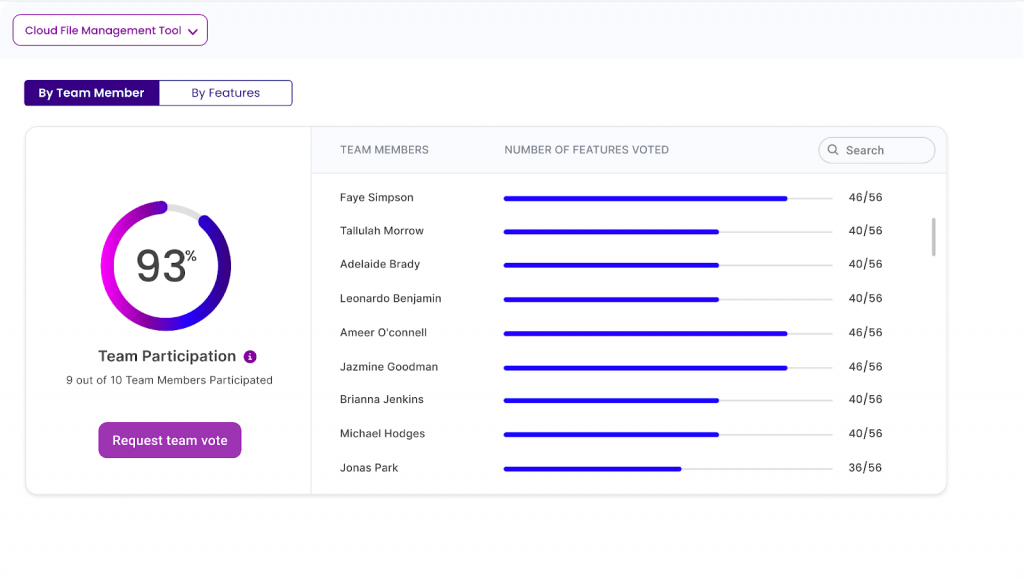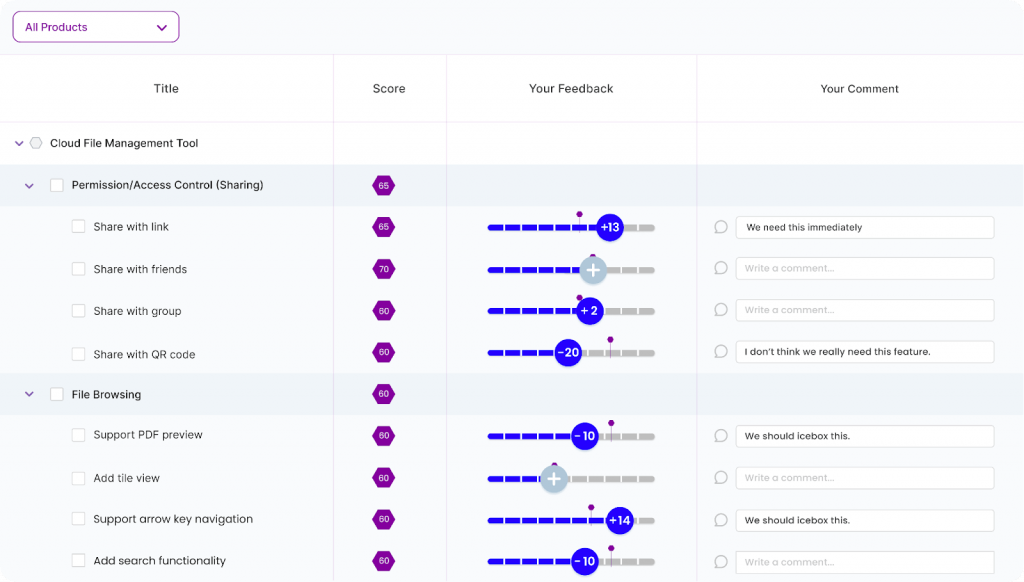Top 10 Things That Developers Expect From Product Managers

Have you ever experienced a disconnect with your remote developers?
Regarding your shared and individual workflows, your developers may not be telling you what they expect from you.
Do not worry; we are here to help you. Let’s look into how developer-product manager relationships matter and how to create a link between the two.
Who Is a Developer?
A software developer designs websites, programs, and supporting technologies that enable users to perform particular tasks.
Similarly, software analysts and testers identify faults within the software and make sure to remove them.
A bachelor’s degree in software engineering is typically all needed to become a software developer, while it is also desirable to major in STEM or computer science.
Software developers create the user interface (UI) and the user experience (UX) you run into while operating devices and applications.
There are numerous types of developers based on the programming language and framework they use. For example, Ruby and its Rails framework provide an elegant and productive environment that lets ideas ship rapidly. To leverage this, companies often look to hire Ruby on Rails developers who can harness the framework’s full potential.
Who Is a Product Manager?
A product manager links creative expertise, corporate strategy, and consumer demands to create desirable, practical, and useful products.
Product managers are the center of the product and the product team, which helps create a successful outcome.
In short, product managers, customers’ needs, and developers, including engineers and designers, are all vital factors in product management.
A software developer begins with laying the foundation of UI/UX and expects some things from the product managers.
Lets’s take a closer look into what those are.
What Do Developers Expect From Product Managers?
1. Communication
The fundamental secret to a successful product-developer partnership is good communication.
The development process runs more effectively if the two parties have open lines of communication.Both the parties should be open to getting business phone numbers, exchanging business email handles, or their business Linkedin profiles for effective communication.
Since the product managers are the intermediary between the developers and clients, it is their responsibility to facilitate successful communication between the two.
During development, developers will have a lot of queries. As a product manager, you must be quick and responsive with your doubt-clearing responses.
For instance, a product manager might forget to mention a product specification to a developer, but if they respond fast, both the product manager and the developer can save time.

2. Milestones and Deadlines
It’s challenging for developers to act and use their expertise when there isn’t a clear goal in sight.
This happens not because they are unattainable but because the person in charge of progress didn’t set realistic targets; far too many initiatives wind up in development stagnation.
Break down significant goals from new features to product updates.
Your development team will find it simpler to monitor progress and constantly be informed of what they’re doing if your milestones are more clearly defined.
A software developer also believes that a product manager will handle deadlines intelligently.
If the product manager is doubtful, they can define specific external and internal deadlines to make developers feel more at ease while allowing them to take extra time for development.
3. Feedback
One of the critical skills you can have as a product manager is to listen to developers when they provide feedback or objections.
If a developer recommends a different option, consider listening to their reasons and altering your requirement to something more doable.

Product managers and developers can both benefit from ongoing feedback. One-on-one sessions with each team member to check in and see how you are progressing are vital.
A quick 15-minute catch-up can still be beneficial for each of you to understand what’s going on personally.
You should not miss these meets because your developers work offsite, and communication becomes difficult.
4. Be Realistic
When developing and refining a product, it’s simple to have lofty goals; doing so is a key component of any product manager’s job.
Yet, making something meaningful requires a lot of time and attention that your company might be unable to put forth.
Consider what can and cannot be achieved with your product realistically rather than shooting for the sky and being let down.
Working toward a specific, attainable objective can inspire your developers much more than chasing after an impossibly distant dream.
Prioritization is necessary if you want to mark something as ‘urgent.’ And more importantly, if these priorities change, you must let your developer know about it.
5. What Instead of How
It is your job as a product manager to translate a concept into a product.
To accomplish this, one must place a much greater emphasis on the “what” than the “how” of product production.
A product manager becoming fully engaged in the development process is one of the developers’ biggest stress sources.
Participating in development while intending to contribute is simple, producing more issues than you resolve.
Hence, the developers handle the practical aspect of product creation and its features.
6. Product Knowledge
One of the most critical aspects of the product lifecycle is having up-to-date information about its features.
After a developer begins working on the product, requirements can frequently change, but they want the product manager to keep an updated version of the latest specifications constantly.
They should be knowledgeable about a collection of tools that may be implemented to improve the entire process.
For instance, having a thorough understanding of various tools for documentation, metrics, session recording, agile processes, and their capabilities helps them make better decisions and choose what is best for the team.
It will be challenging to communicate the details to developers if they are unclear about the expectations or do not fully comprehend the value that feature will provide to the product.
7. Quality Assurance
Nothing is more satisfying for a product manager than launching a new product or upgrading early and on budget.
Spending more time on quality assurance is always preferable to rushing to release a product that isn’t as outstanding as it could be.
It is easier for your development team to resolve bugs before release the earlier your QA team can find them.
You may prevent the typical last-minute developing headaches by establishing a straightforward QA procedure that allows your development team enough time to fix issues.
One of the most challenging things for a developer is the testing process and bug fixing.
Having a set of standards and a procedure in place for recording bug reports is crucial.
Thus, it’s essential for you as a product manager to verify the bugs correctly in one go instead of wasting time.
8. Metric-based Decisions
When a feature request pops up, you can tend to act on it without considering its implications or worth.
There is no purpose in wasting development time on something if the user receives no, a negative or diminished value from it.
However, the only way to ensure the feature’s impact is by using the analytics metrics.
A product manager skilled in metric tools can determine whether to move forward using the data feature.
A product manager who tries to experiment or integrate more agile procedures into the team workflow would help the developers.
The introduction of agile practices like scrums, kanbans, KPIs, etc., would benefit both the organization and the developers.
9. Learn the Technicalities
Working with developers doesn’t require you to be a developer. Although having a tech background is preferred by developers, it is not necessary.
The actual requirements are curiosity and an openness to learning.
Ask them about their profession and the technical issues they face if you don’t have a basic understanding of them to identify your blind spots.
Your product manager work is full of opportunities to learn new things.
They’ll value your effort to comprehend what they accomplish as long as you pose inquiries about their specialization area.
And the knowledge you gain will unquestionably improve your job performance.
10. Building Trust
Gaining the trust of your developers is the best method to strengthen your relationship with them.
You’ll move quickly toward earning the trust of your team if you ask thoughtful questions, value their knowledge, treat them seriously, and give them room to do their job.
They are more inclined to offer ideas, want to assist you, and set tighter deadlines the better your working connection is.
A good product manager would work to ease the team’s problems and build mutual trust among the team members.
Conclusion
Consider your strategy carefully because product managers create the atmosphere for the entire team.
You’ll discover a more distinct path for the business and product roadmap as a product manager if you follow these 10 points.
This is all the information you need to bridge the gap between a developer and a product manager.
If you’re new to product management and need proper guidance, try Chisel’s free forever today and make the best of it!
